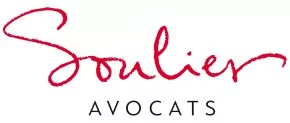In a decision issued on February 25, 2022, the Conseil d'Etat (French Administrative Supreme Court) validated the derogation allowing the use of sugar beet seeds treated with neonicotinoids.
It dismissed the application filed by four associations (Agir pour l'environnement, the Confédération paysanne, the Fédération nature et progrès and the Fédération française des apiculteurs professionnels) for an interim judgment to suspend a Ministerial Order dated January 31, 2022 that provided for this derogation.
By Ministerial Order dated January 31, 2022 (the "Order"), the French Minister of Agriculture and Food and the French Minister for Ecological Transition provisionally authorized the use of sugar beet seeds treated with plant protection products containing the active substances imidacloprid or thiamethoxam (otherwise known as neonicotinoids) and specified the crops that may be sown, planted or replanted for the following seasons.
Pursuant to Article 1 of the Order, "The placing on the market and use of sugar beet seeds treated with plant protection products containing the active substances imidacloprid or thiamethoxam are authorized for a period of one hundred and twenty days from the entry into force of this order, under the conditions set out in Annex 1."
Annex 1 lays down the conditions for the placing on the market and use of sugar beet seeds treated with plant protection products containing the active substances imidacloprid or thiamethoxam (relevant product, periods of validity of the authorization, conditions of use).
Annex 2 specifies the crops that may be sown, planted or replanted in the three seasons following the year of planting of sugar beets whose seeds have been treated with the plant protection products mentioned in Article 1.
Several environmental associations and associations representing beekeepers and farmers asked the Conseil d'Etat to suspend the Order under the so-called "référé-suspension" action.
It should be recalled that the "référé-suspension" action is a summary procedure that allows to ask the administrative judge to prevent the immediate enforcement of an administrative decision if it is believed to be illegal. The summary ruling is provisional, until the case is adjudicated by the judge responsible for ruling on the merits. For this action to be successful, it is necessary to be able to show that there is an emergency to suspend the enforcement of the challenged decision and that there are serious reasons to believe that it is illegal.
Firstly, the summary judge noted that the law expressly provided for this possibility of derogation for these crops, provided that certain conditions are met, in particular with respect to the risks for these crops.
Indeed, European Union law prohibits the use of neonicotinoids, but provides for temporary derogations when there are serious risks for agriculture and when there is no other solution.
Law No. 2020-1578 of December 14, 2020 on the conditions for placing certain plant protection products on the market in the event of a health hazard for sugar beets (the "Law") temporarily authorized the use of these products for sugar beets. It was the subject of a decision of the French Constitutional Council dated December 10, 2020, by which the Council confirmed its conformity with the Constitution given the conditions attached to this authorization and its provisional character.
It thus amended Article L. 253-8 of the French Rural and Maritime Fishing Code that deals with precautionary and monitoring measures. This Article provides that "The use of plant protection products containing one or more active substances of the neonicotinoid family or having modes of action identical to those of these substances, as specified by Decree, and seeds treated with these products is prohibited."
The Law added afterwards:
"Until July 1, 2023, joint orders of the Ministers in charge of agriculture and the environment, issued after the opinion of the supervisory board mentioned in II bis, may authorize the use of seeds treated with products containing the substances mentioned in the first paragraph of this II, the use of which is prohibited under European Union law or under this Code. These derogations are granted under the conditions provided for in Article 53 of Regulation (EC) No. 1107/2009 of the European Parliament and of the Council of October 21, 2009 concerning the placing of plant protection products on the market and repealing Council Directives 79/117/EEC and 91/414/EEC."
(The Law also created a supervisory board responsible for monitoring and controlling research and implementation of alternatives to plant protection products containing one or more active substances of the neonicotinoid family or with identical modes of action to those substances. This supervisory board meets quarterly and publishes an annual report).
As such, the Law allows until July 1, 2023 to authorize such uses for a maximum period of 120 days under the conditions provided for in Article 53 of European Regulation No. 1107/2009.
Pursuant to said Article 53 that deals with emergency situations in plant protection:
"By way of derogation from Article 28, in special circumstances a Member State may authorise, for a period not exceeding 120 days, the placing on the market of plant protection products, for limited and controlled use, where such a measure appears necessary because of a danger which cannot be contained by any other reasonable means.
The Member State concerned shall immediately inform the other Member States and the Commission of the measure taken, providing detailed information about the situation and any measures taken to ensure consumer safety."
It should be noted that the Belgian Administrative Supreme Court has referred to the Court of Justice of the European Union several requests for a preliminary ruling (Case C-162/21) concerning the implementation of this provision, and in particular the meaning of the expressions "special circumstances" and "which cannot be contained by any other reasonable means". The circumstances of the case in which the Belgian Administrative Supreme Court made these requests are quite similar to those in which the summary judge of the Conseil d'Etat has rendered the decision discussed in this article.
Secondly, the summary judge of the Conseil d'Etat considered that the plaintiffs had not demonstrated the existence of a serious doubt as to the legality of the Order, which, according to them, resulted from non-compliance with the conditions set forth in Article 53 of European Regulation No. 1107/2009.
The plaintiffs invoked the absence of new or aggravated facts in 2022, the absence of a special limit and the persistence of the presence of the substances in the soil beyond the authorized 120-day period, and the absence of proof of a "danger that cannot be contained by any other reasonable means."
On the contrary, the summary judge pointed out that:
- During the 2020 season, the production of sugar beets significantly decreased due to the infestation of crops by aphids responsible for transmitting yellowing viruses and due to the lack of use of products containing neonicotinoids (because of the prohibition that resulted from Article L. 253-8 of the French Rural and Maritime Fishing Code in its version in force at the material time). This is why the decision had been taken, with the aforementioned Law of December 14, 2020, to provide for a derogation for sugar beets, for a limited period of time under the conditions set by the aforementioned Article 53 of Regulation 1107/2009;
- For the 2022 season, the risk of a new massive infestation by aphids carrying beet diseases in the spring of 2022 is serious. But, at this stage, despite ongoing research, there are no other means available to effectively contain this danger for the agricultural production concerned, at least for the 2022 season;
- While the Order does not include any geographical limitation, it can only apply in areas where sugar beet is cultivated, which represent only 1.5% of France's utilized agricultural land and are concentrated in practice in the Hauts-de-France, Ile-de-France and Grand-Est regions;
- The use of authorized seeds, limited to 120 days for the 2022 season and only for sugar beets, can only be carried out in accordance with the requirements set out in Annex 1 of the Order, and in compliance with the general requirements governing the use of plant protection products, particularly with regard to distances from residential areas or watercourses.
As already ruled for the 2021 season with a similar order dated February 5, 2021, the summary judge of the Conseil d'Etat therefore considered that the challenged Order merely specifies the conditions for implementing this authorization for the 2022 season. Pointing out the absence of serious doubt as to the question of legality, the summary judge dismissed the application for the suspension of the Order.
To read in French, please click here.
The content of this article is intended to provide a general guide to the subject matter. Specialist advice should be sought about your specific circumstances.


